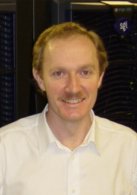 22-26 August 2011, Porto, Portugal
22-26 August 2011, Porto, Portugal
Randomness in the Universe? The Hot Big Bang model describing our Universe is now so well-attested by observations it is called the standard cosmology. The best evidence for this comes from the cosmic microwave sky, the relic radiation left over from the initial Big Bang explosion. However, cosmologists have now added inflation to the standard cosmology, that is, an epoch of rapid exponential growth during the first fractions of a second after the beginning of the Universe. This is because inflation creates random primordial seeds around which galaxies and other structures can form in the late Universe. In fact, inflation predicts these seeds will be purely random to about 1 part in a million (i.e. their statistical properties will precisely follow the so-called 'Bell curve' or normal distribution). This prediction is arguably the most stringent test of the standard cosmology and the theory will come under intense scrutiny from new experiments like the Planck satellite and future galaxy surveys.
Short Bio |
We use cookies to ensure that you get the best experience on our website, by continuing on this website you agree to the storing of cookies on your device. Learn more about our Privacy Policy .





















 Professor Paul Shellard is Professor of Cosmology and Director of the Centre for Theoretical Cosmology in the Department of Applied Mathematics and Theoretical Physics at the University of Cambridge. His research endeavours to advance the confrontation between theories of the early universe and empirical cosmology, focusing especially on the primordial fluctuations for large-scale structure formation. Ongoing investigations of the science that can be extracted from the cosmic microwave sky includes work on critical tests to distinguish between inflationary models or even to identify the distinct signatures of cosmic strings. He is a member of the HFI Core Team within the Planck satellite consortium and he leads a project on Non-Gaussianity. Since its inception in 1997, he has been coordinating COSMOS, the UK National Cosmology Supercomputer, an essential tool for quantitative progress in theoretical cosmology.
Professor Paul Shellard is Professor of Cosmology and Director of the Centre for Theoretical Cosmology in the Department of Applied Mathematics and Theoretical Physics at the University of Cambridge. His research endeavours to advance the confrontation between theories of the early universe and empirical cosmology, focusing especially on the primordial fluctuations for large-scale structure formation. Ongoing investigations of the science that can be extracted from the cosmic microwave sky includes work on critical tests to distinguish between inflationary models or even to identify the distinct signatures of cosmic strings. He is a member of the HFI Core Team within the Planck satellite consortium and he leads a project on Non-Gaussianity. Since its inception in 1997, he has been coordinating COSMOS, the UK National Cosmology Supercomputer, an essential tool for quantitative progress in theoretical cosmology.
